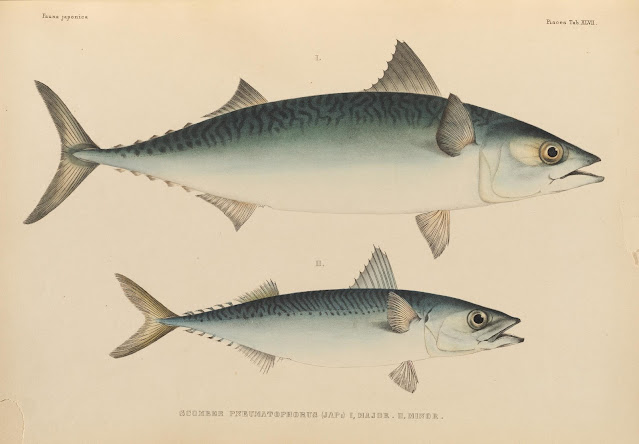You probably have that person in your life who is on the forgetful side.
The family member who might now and again leave the burner on after boiling water for tea. Now imagine if that person left the burner on, without fail, every time he used the stove. Now imagine that he doesn’t even need hot water, but just walks over, turns on the burner, and walks away. That’s my dad.
Ten years ago my father was diagnosed with a rare form of early-onset dementia known as Pick’s Disease. I was teaching on the Big Island of Hawai‘i at the time and my parents were in Washington State, the Pacific between me and his slow slide into dementia.
During the first two years following his diagnosis, the occasional video call left me acutely aware of the velocity with which I was losing my dad. He’d be mid-sentence and suddenly go quiet, forgetting a word or his train of thought. He’d ask about my baby boy, even though my wife had recently given birth to a girl. A curtain was closing over his mind.
My wife, Kristin, and I had fled the omnipresent grey of Seattle with the dream of raising a family in Hawai‘i. I’d found a job teaching at Hawai‘i Preparatory Academy, we had an apartment at the foothills of Kohala mountain, and our one-year-old, Matilda, was taking her first steps on soft sand beaches. The decision to move back to Spangle, Washington, the tiny farm town of my childhood, was not an easy one, but I felt compelled to squeeze in a little more time with Dad before his mind left him completely. We would trade in sunset beach dinners and volcano hikes for rodeos and wheat fields.
Waimea, Hawai‘i is no major metropolis, but it sure feels like one juxtaposed with Spangle and its 300 inhabitants. After nearly two decades of globetrotting and putting as many miles as I could between my small-town roots and me, I suddenly found myself moving into my deceased grandmother’s house and living a mere three blocks from my folks.
Presently, Mom has a professional caregiver at home with her seven days a week. She can no longer haul Dad up off the carpet herself when he has one of his seizures, can’t lift him from the toilet when he forgets how to straighten his legs, can’t coerce him into releasing the randomly applied vice grip to her wrist while attempting to feed him. But eight years ago, when we first moved to Spangle, and before things had gotten so bad, when Mom was off at work the TV was Dad’s caregiver. His days were dedicated to such reality show juggernauts as
Man vs. Wild,
Dirty Jobs,
Deadliest Catch, and of course,
Shark Week. I’d swing by in the afternoons, sit and watch some TV with him.
At that point he could still get out a few words before synapses crashed into a forest of plaque. He never finished a sentence, which made for a fun game of context clue. The old fill-in-the-blank. A shark would chomp a surfer’s foot and he’d say, “Now that’s a…”
And the game would begin. “...tasty appetizer?” He’d shake his head no. “...rough start to the day?” No. “...sign you should probably re-enroll in community college?” He’d laugh, but no.
With any brand of dementia things progress and regress at odd intervals, more ebb than flow, but with a strange sort of consistency nonetheless. Some days go well, some not so well, but it’s easy to slip into thinking you know where things stand. Yet, just when you think you’ve got it sorted out, and maybe you’re at peace with the current state of confusion and complexities, out of the blue something will happen, and you realize that your loved one has entered a new stage, more disturbing than the last.
Following a few months of afternoon pop-ins, I opened the front door and was met by a new stage: Dad, standing in a panic. Before I could get to the kitchen and turn off a burner, a wall of noise stopped me cold—the TV turned up to the highest possible volume. It blared something about a Florida boy and his sister dragged out from the shallows. Dad’s pallid face was more terror-stricken than that of the
Shark Week siblings.
Completely overwhelmed, he tried, but could not, form a sentence. Holding the remote in his loose grip, he eyed the thing as if it were a coiled snake ready to strike at any sudden movement.
I grabbed it, pointed it at the TV, and turned down the volume.
He stared at the television, at the remote in my hand, then to me. Finally, he closed his eyes and sighed the long, empty sigh of a man lost to the woods, resigned to the likelihood of not being found.
I helped him back to his chair. Even with the television at a reasonable volume his hands continued to shake. A drop of sweat slid past his temple. That’s when I took note of another issue. He smelled of shit. In all the bedlam, he’d lost control of his bowels. It was another first. I hurried to the kitchen and turned off two of the four burners. They were bright red and the scorched metal smell, combined with that of his shit, left me struggling for breath. I stood there staring at the red stovetop for a long time, appreciating that, yes, we had just crashed into the next stage of his dementia. (...)
A particularly sinister aspect of dementia is that, over time, it begins to erode your own memories of the afflicted. A cloud of disquiet coats the rearview mirror, leaving you squinting for clarity. It took a concerted effort for my mind’s eye to travel back to when he was himself, to see past this fog, so pressing and ever present it left little room for the good old days. (...)
Roles shift. It’s part of the aging process. But when the dynamic flips too quickly it’s the emotional equivalent of quicksand. I wasn’t ready for this, and the more I struggled, the more his disease seemed to pull me down with it. I had imagined this day might arrive, someday, but not until my parents were in their 80’s or 90’s… certainly not in their 50’s. I shouldn’t be cleaning up after his incontinence, holding him up on walks, nursing cuts and scrapes.
The shift took place at a dizzying pace. No time to make peace with it. No time to prepare. I’d left a good job, a good life in Hawai‘i to sneak in this quality time with my hero, but there was little quality to this time. We weren’t communicating much. Not for lack of want. He just couldn’t anymore.
He wasn’t able to spend the time I’d envisioned with his granddaughter. She made him nervous. If Matilda toddled towards him he looked pleadingly at us, hoping we would stop her. If she sat in his lap, his hands shook. If she swiveled around to look at him, he turned his gaze out the window. He didn’t know what to do with her. He’d flinch and stiffen with her touch, seemingly afraid of accidentally injuring her.
Matilda would never know her grandfather. Not really. Not as himself. Rather, she would only ever remember this ever-nervous, confused version of a grandpa, a man whose once rich brown eyes had turned to grey. She grew fearful of him and they would never bond.
Following two years of small-town living, it was time for us to go. More to the point, it was time for me to go. Some people, like my mom, can caretake for a loved one for years on end with no finish line in sight. But I could no longer do it. Though she never spoke of it, she must’ve noticed the heaviness that I began to carry around with me; a heaviness that I tried to keep hidden from her. Of even greater concern, our own relationship began to grow strained. We no longer joked around or playfully gave each other a hard time, as was our way.
My wife, Kristin, remained saintly throughout our time in Spangle, assuring me that she would give eastern Washington as much of a go as I needed, but I’d come to the realization that a healthy space between Dad’s disease and my own family’s path was vital.
Through a former colleague, I was told of an opening at my old school, Hawai‘i Preparatory Academy. The teaching position came with a three-bedroom cottage on a breathtaking 26-acre campus.
I applied and got the job. We would be moving back to the islands in a month.
After putting off telling my parents for over a week, understanding that it would shatter my mom, I broke the news. Sitting out on their back patio, I struggled to explain why I would be taking my family back across the Pacific and landing on the same volcanic island from which we’d come.
“It’s a great school. With Matilda starting kindergarten soon, she’ll have access to a world-class education in a safe, beautiful place.”
“You know I won’t be able to travel as Larry gets worse.”
“I know. I’m sorry, Mom. But we’ll head back on breaks. Nice thing about teaching, we get months off at a time. We can still spend summers with you.”
She’d fiercely bonded with Matilda over the last two years. “You just miss so much over those long stretches. You miss everything.”
“We’ll Facetime every week.”
“Can’t hug a computer.” She began to cry.
At that stage, it was rare that my dad could get out more than a word at a time, if that. But there on the patio, he suddenly blurted, “I would! I would if I were you!”
Mom wiped her eyes and stared at him. Then, “Well, look who’s come to the party.” She leaned into him and with her fingers stroked his hair.
I was trying not to cry. “Thanks, Dad.”
He nodded.
“Love you, Dad.”
He looked at Mom and smiled. She kissed the stubble of his cheek.
He turned back to me. “Just…”
And dementia-Dad was back. I gave it a go. “Eat lots of pineapple?” It was his favorite fruit.
He shook his head no.
“Get Matilda into Hula lessons? Already looked into it.”
No.
“Watch out for sharks.”
He nodded, laughed.
by Jeffery P. Mix, Hawaii Review of Books |
Read more:
Image: The author
[ed. Dementia (I hate that term). It erodes the memory of loved ones, and becomes a part of how you'll always remember them. Like the author, I was lucky to share a moment of clarity with my mother before she disappeared completely, I'll always treasure that.]




















